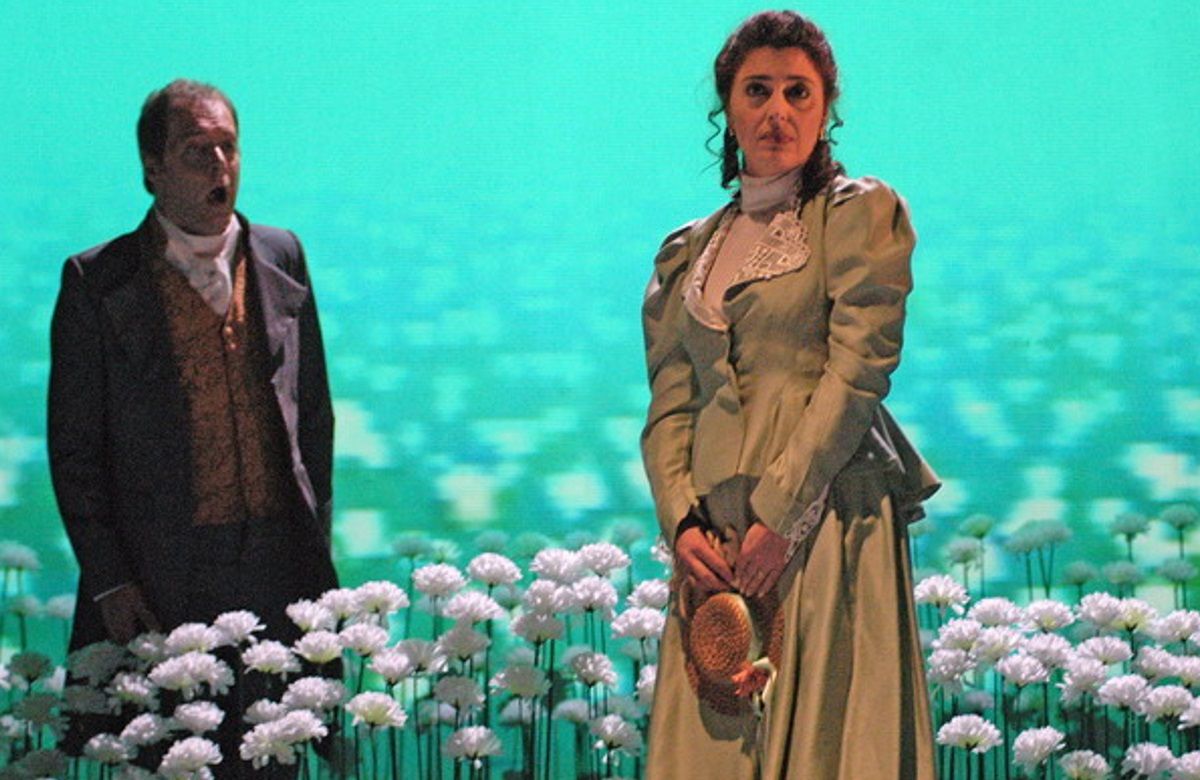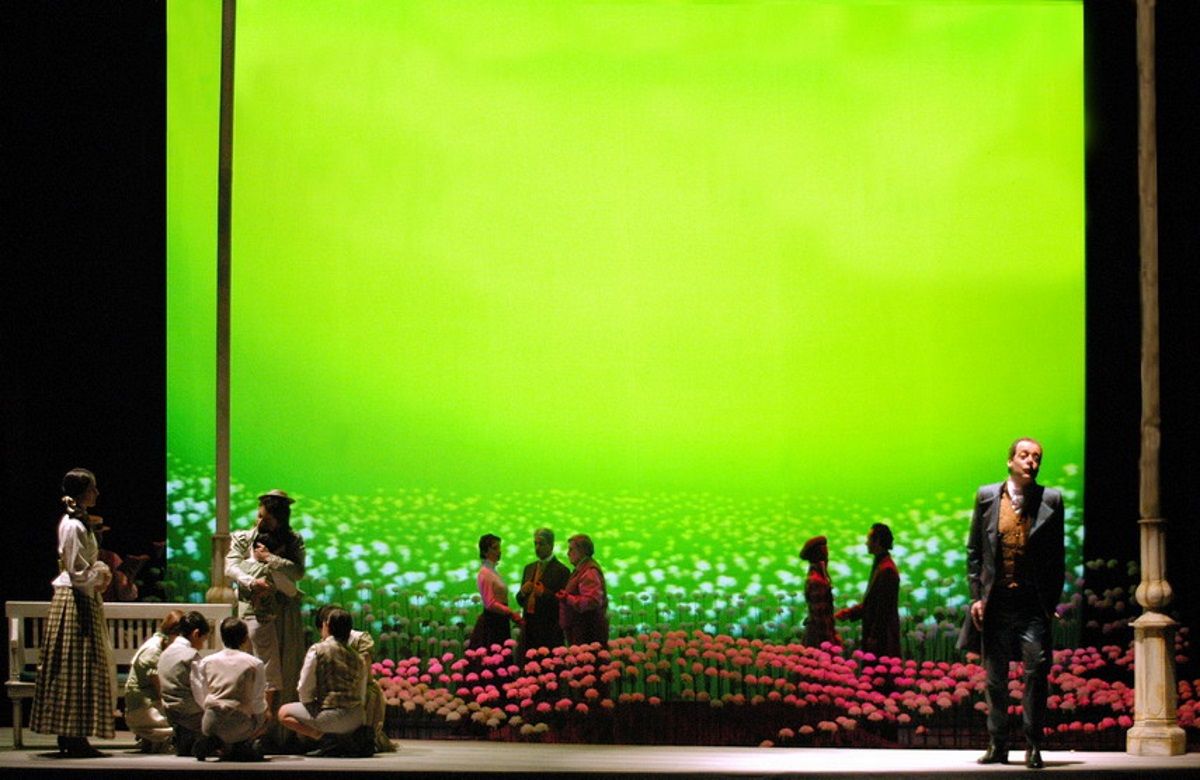Werther
(J. Massenet)
Teatro Avenida - Buenos Aires (Argentine)
Première August 31, 2004
How to represent a state of mind? As an emotional condition that emanates from the source of our agitation, where it all begins, i.e., from the human heart?
These were the first questions that triggered my path towards the staging idea of this opera. If we are affected by a state of mind, surely our view of reality is equally affected. That is precisely what happens to Werther: pure overwhelmed subjectivity that impregnates the stage.
Love seems to move in phases, from the rapture of the first vision to the drunken perception of the perfect loved one and finally the threat of ruin that will devastate not only him but also his beloved. Hence the decision to create a space in which everything —costumes, furniture, objects, etc.— is "stained" by the colour of this subjectivity, linked to an accompanying symbolic nature. Werther is the one who arranges the scene and chooses the colour while, shut out from the beginning, he unsuccessfully strives by every possible means to inhabit it, to become part of that image. The dramatic echo comes in the form of Charlotte's voice, repeating over and over again, "We must part”.
Critiques
 |





